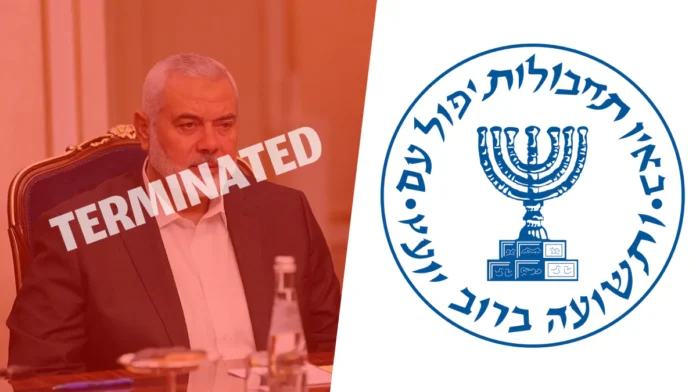New Delhi: In a daring covert operation, Israel’s intelligence agency Mossad enlisted Iranian security agents to plant explosives in a building in Tehran, targeting Hamas’s political leader Ismail Haniyeh, according to a report by The Telegraph. This meticulously planned assassination highlights the intricate and high-risk maneuvers of one of the world’s most formidable espionage agencies.
The Original Plan and Its Modifications
Initially, the plan aimed to eliminate Haniyeh during his visit to Tehran in May for the funeral of former Iranian President Ebrahim Raisi. However, the presence of overwhelming crowds posed significant risks, forcing Mossad to abort the operation. Iranian officials revealed that the plan had to be revised due to these unforeseen complications.
Planting the Explosives
Two agents, directed by Mossad, managed to place explosive devices in three separate rooms of the Islamic Revolutionary Guard Corps (IRGC) guesthouse in northern Tehran. This location was strategically chosen based on the likelihood that Haniyeh would stay there. Surveillance footage, held by Iranian officials, shows the agents moving stealthily, entering, and exiting the rooms within minutes.
Mossad’s Operational Dynamics
With an annual budget of $3 billion and a workforce of 7,000, Mossad is the second-largest espionage agency in the West after the CIA. The agency operates through various departments, though the details of its internal structure remain largely undisclosed. Mossad’s extensive network of informants and agents within Palestinian militant groups and hostile countries like Lebanon, Syria, and Iran enables it to execute precise assassinations.
The Special Operations Division, also known as Metsada, is responsible for carrying out highly sensitive assassinations, sabotage, paramilitary, and psychological warfare operations.
Execution of the Assassination
In the early hours of Wednesday, at 2 am, the operatives remotely detonated the explosives in the room where Haniyeh was staying. The explosion resulted in Haniyeh’s death, confirmed by officials within the IRGC. The agents from the Ansar-al-Mahdi protection unit, a group responsible for safeguarding high-ranking officials, were believed to be involved in the operation.
Also Read
- Mangoes of India
- Father’s Day 2025 Wishes to Celebrate Your Super Dad
- My TOTT of IPL 2025
- Books to Read This Summer – For Kids Who Love Stories
- Natural Hair Care Secrets from the Indian Kitchen
IRGC’s Response and Potential Ramifications
“This is a humiliation for Iran and a huge security breach,” an IRGC official told The Telegraph. A special working group has been established to address this breach and devise strategies to mitigate its impact. In response, the IRGC is considering its options for retaliation, including a direct strike on Tel Aviv, potentially involving Hezbollah and other Iranian proxies.
Since the 1979 Islamic Revolution, Iran has sought to expand its influence across the Middle East through proxy groups. The Quds Force, one of the five branches of the IRGC specializing in intelligence and covert operations, plays a pivotal role in supporting these groups.
Political Implications
The timing of the assassination, coinciding with President Masoud Pezeshkian’s inauguration, has sparked suspicions about its intentionality. During his campaign, President Pezeshkian pledged to move away from provocative policies and restore Iran’s standing through dialogue. His victory in the recent elections reflects a public desire for change, following dissatisfaction with the hardline policies of his predecessors. However, the dynamics of Iranian politics, where hardliners and Supreme Leader Ayatollah Ali Khamenei hold significant power, will challenge President Pezeshkian’s ability to implement his vision.
